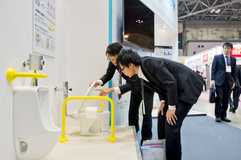Technology 3: Japanese toilets / Tokyo
Flush with pride
It is one of life’s great levellers but what goes on when we lock the bathroom door has always been a taboo subject. The exhibitors at Toilet Tokyo, however, are committed to combining hi-tech and green solutions that will make a visit to the throne room something everyone will want to talk about.
Wondering how Japan could possibly top its own hi-tech toilets? On an autumn day at the Toilet Tokyo convention, Takashi Okada is giving a rundown of what he considers a leap forward for the sector. As he presses on a toilet seat, a hidden nozzle sprays a fine mist into the bowl. “Electrolysed water,” he says. In a matter of seconds, the toilet has just converted ordinary water into a disinfectant that it is now using to clean itself. “It’s only enough to fill a small teacup – about 20ml – but that should kill any bacteria in the bowl,” he adds.
It is the sort of thing that Okada’s company, toilet-maker Toto, has earned a reputation for doing so well: small innovations that add up to big improvements. Across from Toto’s booth is the company’s domestic rival Lixil, which owns bathroom and kitchen-fixtures brands Inax, American Standard and Grohe AG. Over the past year it has built no-flush compost toilets for Kenyan schools and set up programmes to teach children in Nairobi slums (and parts of China, Vietnam and the Philippines) the importance of proper sanitation. “Educating children about proper hygiene is just as important as providing them with toilets,” says Lixil’s Tadashi Matsuoka. “Our goal is to reach 2.1 million children by 2018.”
Two companies, two seemingly conflicting ideas for the future of toilets. One is playing up its cutting-edge technology to curb water use and do away with the discomfort of dirty bathrooms; the other is looking to build basic toilets for people who lack any at all. But both share a common mission: to make answering the call of nature a cleaner, more pleasant experience.
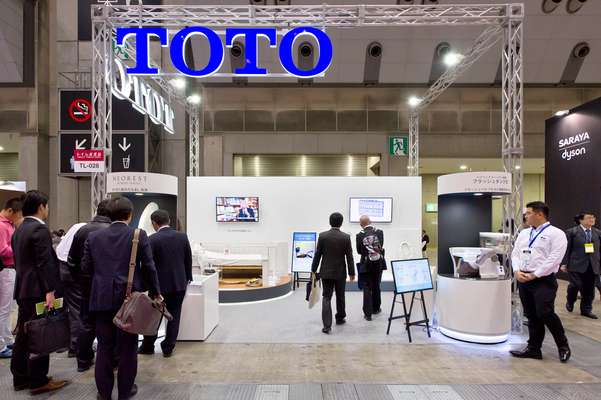
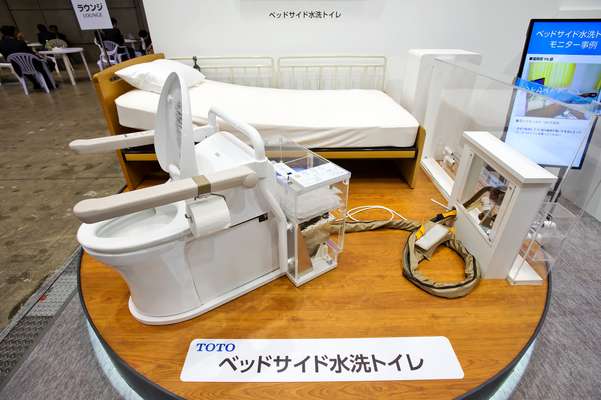
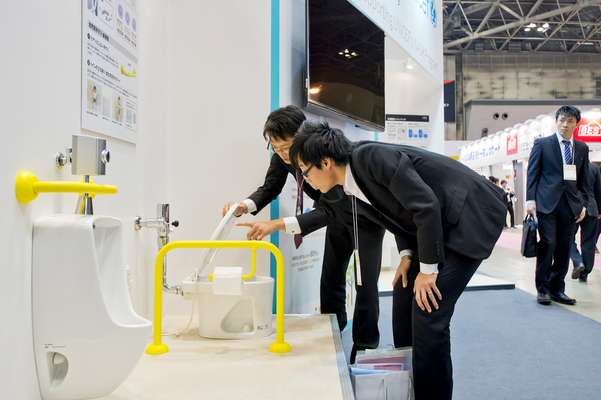
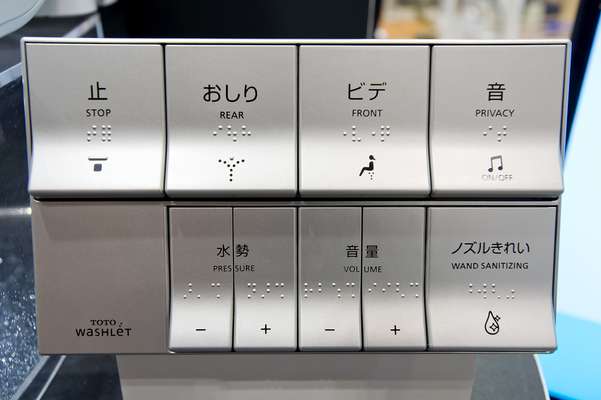
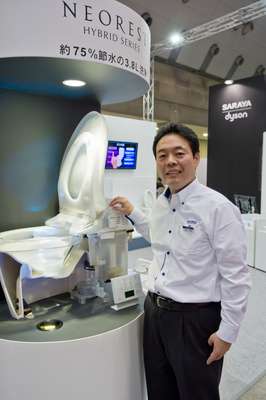

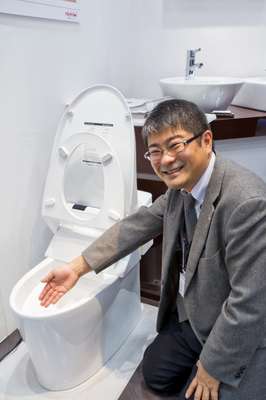
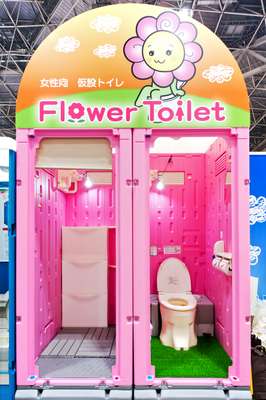
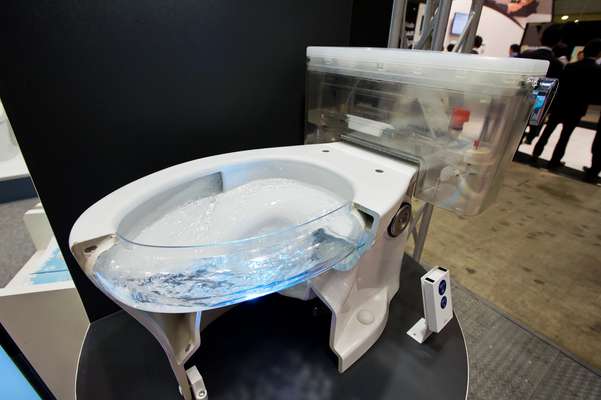
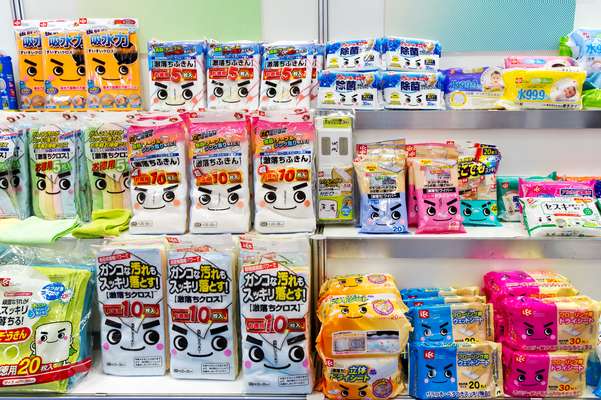
“A toilet should also provide privacy and safety,” says Federico Properzi. As the chief technical adviser of UN-Water, the United Nations agency overseeing water issues, he spends a lot of time pressing governments to make sanitation a top priority. He is proud of having chipped away at the taboo of bringing up toilets in polite company. “Ten years ago we didn’t talk about sanitation. Today we can talk openly about defecation and hygiene,” he says.
The UN estimates that 2.5 billion people are without a proper toilet. The shortage forces children to miss school, leaves women vulnerable to sexual harassment and violence and is blamed for 700,000 deaths every year. The World Bank calculates the economic cost at €200bn annually. “Unless we improve sanitation the cycle of poverty will perpetuate,” says Properzi.
Such concerns seem far away at the Toilet Tokyo convention. Manning the stand for Aichi-based toilet-and-sink manufacturer Janis is Akira Imada. He can barely contain his excitement as he lifts the lid of the Mighty Clean 950 and runs his fingers along the front rim of the bowl, which is no thicker than a coffee mug’s. “We made it that thin so it’d be easy to clean,” he says.
In small booths nearby there are wooden chairs that double as portable toilets for nursing homes, compost toilets with heaters and mixer that don’t need emptying for six months. A prototype prefabricated bathroom shelter with decorative dandelion patterns is supposedly for female construction workers.
But in Japan the hi-tech flush toilet is still king and Toto’s top-of-the-line Neorest is the big draw. At ¥540,000 (€3,700) it’s not cheap but it packs in three decades of tinkering since the Washlet seat first appeared on the market.
There is the familiar retractable nozzle that squirts you in the rear or the front and sterilises itself afterwards, plus a built-in deodoriser that neutralises bad smells. The lid opens and shuts automatically, while a “privacy” button triggers a flushing sound to drown out your own noise. The “tornado flush” is quiet and cleanses the entire bowl with only 4.8 litres of water – less than half the amount used by toilets just a few years ago. Toto has just unveiled a durable, less pricey version for public lavatories.
It is unclear whether the Neorest will ever become an object of desire in the rest of the world. Not every country has the infrastructure, nor is everyone comfortable plugging a toilet into an electric socket (perhaps fearing an embarrassing electrocution episode) or paying a premium for a deodoriser. Even in Japan the technology is not standard in public toilets. But Toto’s Okada is undeterred. “We want to make toilets so clean and comfortable that nobody will ever be reluctant to use the bathroom,” he says. “And we have a long way to go before we are satisfied.”

